ITB Hospitality Day 2014: Luxury and sustainability challenge each other
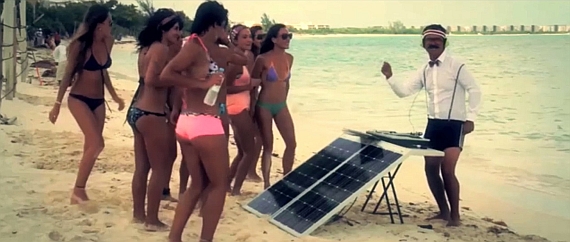 |
|
| Convincing hoteliers and guests with creativity and fun: Ross Harding initiates solar parties at the beach, Bernhard Bohnenberger with creative concepts in the hotels. / photo: Finding Infinity |
Berlin (March 14, 2013). The subject of sustainability remains a constant topic in tourism as well as the contradictions: Is sustainable travel possible in the first place or should environmentally conscious people rather stay at home? Are luxury and sustainability compatible at all? At the "ITB Hospitality Day", the hotel conference at the ITB, two experts of sustainable hotel concepts explained their strategies and ways of looking at things. However, these two protagonists of the panel could not have been more different: Bernhard Bohnenberger of Six Senses Hotels Resorts Spas and newcomer Ross Harding of "Finding Infinity".
Bernhard Bohnenberger was sitting on one side: a traditionally trained hotelier who has been working for many years for Six Senses, a pioneer in the tourism eco-world of luxury, and whose President he is today. Next to him the engineer Ross Harding, founder of "Finding Infinity" and funky newcomer in tourism, who wants to give hoteliers a better and playful understanding of sustainability.
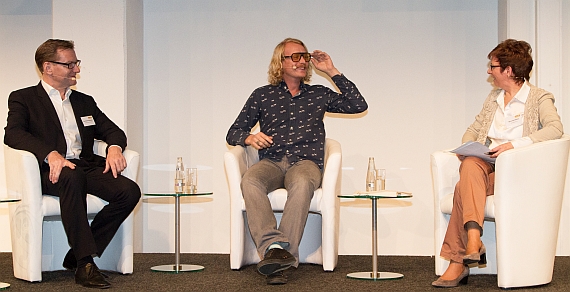 |
|
| Six Senses President Bernhard Bohnenberger (left) and career changer Ross Harding of Finding Infinity talking to Maria Puetz-Willems at ITB. |
The philosophy of the Six Senses Group, founded in 1995, sounds very simple: "We would like to bring the destination as close as possible to the guests," explained Bohnenberger. From the beginning, Six Senses resorts were built sustainably, as nature has become a great luxury today. "Why should people travel to the Maldives in order to find golden fittings and marble?" he asked.
The guests acknowledge this "alternative" strategy. The room rates at Six Senses start at 500 euros and quickly rise to 1,000 euros per night. The guests have dinner in beach attire or casual clothes, and walking barefoot is a must on the islands. "Famous people feel safe with us. We do not address them with their names, often they are not even recognised when they are dressed very casually," described Bohnenberger the pleasant side effects of this strategy. Whenever possible, guests should or may dispense with shoes. On the Maldives, the shoes already disappear in a cotton bag, which is labelled "No news, no shoes", on the shuttle boat – later, they can be found in the wardrobe again. "We do not have the luxury of going barefoot everywhere. In Oman, where we have built on rocks, there are other things in exchange," explained Bohnenberger, for example, an own vegetable farm outside the resort.
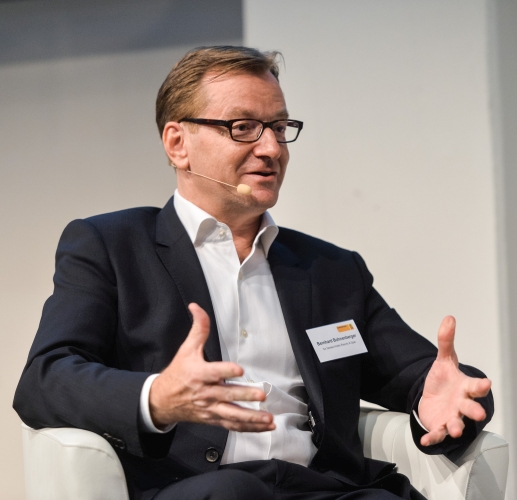 |
|
| Bernhard Bohnenberger: First of all, we are a hotel group and not a sustainability business. |
Everywhere, where it is possible, Six Senses serves local water treated on-site. In principle, the group uses renewable materials for building projects, employs local craftsmen and tries to prevent waste, especially plastic waste. "We obtain the greatest praise for our local food and its quality. Nobody gets excited about wine that has been flown in," said the President. Concerning the claim of "no news", Six Senses does not prohibit its guests to access the internet. "Technologies can be switched off, but people are often stressed more when they are not connected," as Bohnenberger has found out.
Even sustainability has (credibility) limits
Of course, it is a challenge to give guests an understanding of the region and the sustainability concept without appearing didactic. "We encourage the staff members to feel proud of their local heritage. We have butlers who show the people around in the local area. But we have to be careful not to turn into Disneyland," said the manager. In general, Six Senses invests 50 percent of its turnover in sustainability. "We try to employ as many locals as possible. On my first visit in a Six Senses hotel, it was very confusing for me to hear so many different languages," he said retrospectively. In the new resort in Oman, the aim was to employ 70 to 80 percent locals. This target has not been reached yet, but they are working on it, e.g. through an own hotel school.
Despite all sustainability: a luxury resort cannot do without pools and most guests arrive at Six Senses Resorts via airplane. "First of all, we are a hotel group and not a sustainability business," said Bohnenberger modifying his statements. "This means we have to fulfil the wishes of our guests. Our business is tourism and in my opinion this is still the best way to help a country or region." They developed special eco systems for pools and most of them are filled with seawater.
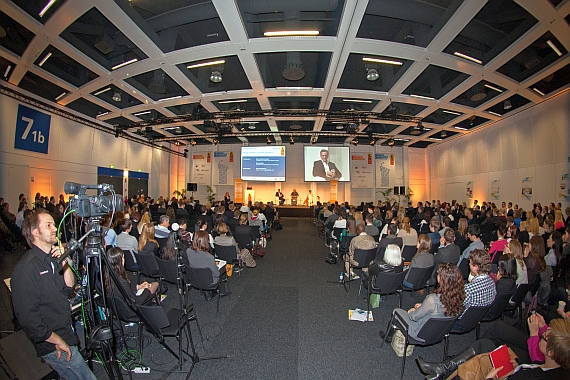 |
|
| The ITB hotel conference in the frog's eye: Luxury and sustainability again attracted hundreds of visitors. / photo (3): ostwestfoto |
The CEO makes no secret of the fact that sustainability itself has a commercial background. The investors have to be convinced of that. However, the subject is not being regarded as a marketing tool. "We do not talk a lot about our advantages as there is a lot of greenwashing concerning this subject in marketing," he said regarding the whole industry. Two years ago, the US investment company Pegasus Capital purchased Six Senses. Today, ten new resorts are under development, and a new focus lies on urban resorts. In the cities, it becomes more difficult to position the brand, said Bohnenberger. But the first success with Six Senses Spas is encouraging.
Enthusiasm through transfer of knowledge
The native Australian Ross Harding, who lives in Berlin, obtained his business idea from Claus Sendlinger, the founder of Design Hotels. "Finding Infinity" occupies itself with new and resource-saving energy sources and means of transportation like travelling per container ship, motorcycling with vegetable fuel or energy from wind, wood and sun.
"We try to combine entertainment with education and the knowledge transfer. People should understand situations and we want to encourage them to communicate," explained Harding in Berlin. Beach parties where solar cells are explained as well as visits to a cheese dairy in the mountains are part of the programme. The aim of his business is to show people new and unknown opportunities. The best thing the hotel industry can do is to strain the environment as little as possible while offering the guests what they want most.
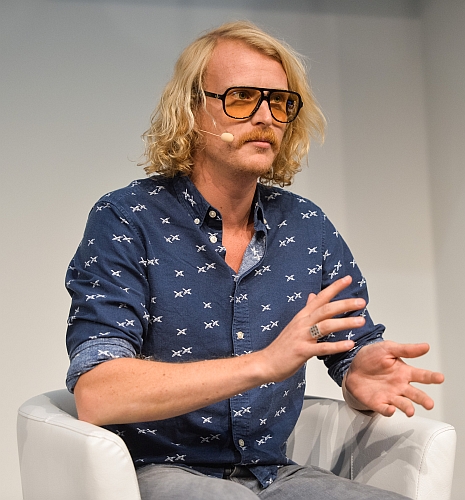 |
|
| Ross Harding: Engineer with fun in sustainable edutainment. |
This way, Ross Harding is the man for playful but sustainable edutainment. Unfortunately, the subject of sustainability is frequently not taken into consideration in the design process, said the consultant regretfully. Especially in Germany, there is high commitment concerning sustainability and many businesses offer solutions. In Australia, however, the government has withdrawn initiatives again.
Concerning Design Hotels, the global sustainability initiative has only just started. "But so far, wherever we have gone, to hotels or their surroundings: we have been able to find lots of good ideas everywhere," said Harding, and names as examples the Design Hotel in Laax, Switzerland, which is completely heated with biomass or the Loisium Wine & Spa Resort in Langenlois, Austria, where wine growers in the vicinity cultivate without pesticides.
"Connecting the hotel with its surroundings is very important to us," explained the expert. An example for this is cooking with neighbours. The integration and the contact to locals already works very well at many Design Hotels. "The Rockhouse Hotel in Negril, Jamaica, has already started a foundation and collects donations for the construction or the improvements of local schools." In general, Design Hotels likes to use hotels with good and sustainable concepts as teaching facilities.
Harding is convinced of one – and not very unessential – thing here: "The sustainability factor fetches the smart investors." / Susanne Stauss
Continuative Links:
To print this article you have to be registered and logged in for newsletter, visitor or subscription.





